The Brutal Price War in the Two- and Three-Wheeled Electric Vehicle Industry!
Over the past two years, the relentless price war in the electric two-heeler and three-wheeler industry has pushed everyone to their limits! From top brands leading the price cuts to smaller brands frantically offloading stock, the industry has been caught in a fierce battle.
Not long ago, rising raw material costs were driving up vehicle prices. But in the blink of an eye, it turned into a "massive price-cutting frenzy", with some stores practically giving away their vehicles at rock-bottom prices!
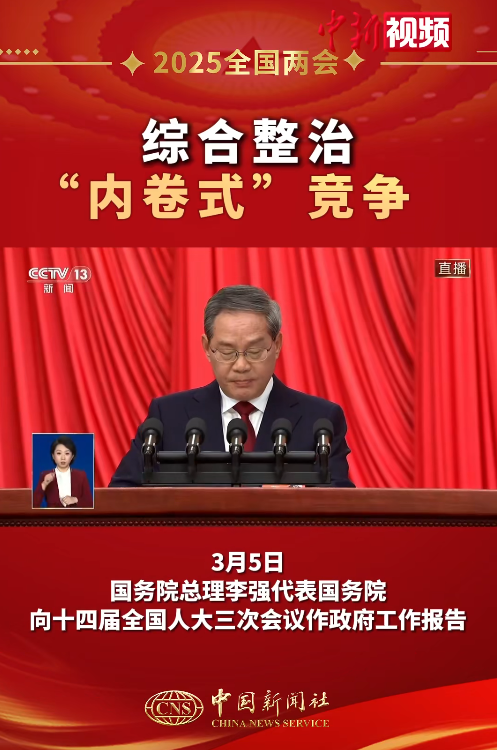
Excessive involution has left all sectors of society exhausted. From the first mention of preventing "involution-style" competition at the Central Political Bureau meeting in July 2024 to the call for comprehensive regulation of such competition at the Central Economic Work Conference in December 2024, the issue has now been officially incorporated into the government work report.
I. Price wars have slashed prices to the bone, yet automakers are collectively facing losses. The industry is severely wounded!
Here are some shocking numbers:
In 2024, the total domestic sales of electric two-wheelers reached approximately 49.5 million units, a year-on-year decline of 11.6%.
Top-tier brands such as Yadea, Aima, and Tailg, second-tier brands like Lvyuan and Xiaodao, and even three-wheeler manufacturers have slashed prices aggressively; some models have been cut in half, falling below 1,000 yuan.
At industry expos, electric bicycles are being sold for as low as 399 yuan, electric motorcycles for just 799 yuan, and electric tricycles have hit an astonishing 1,499 yuan!
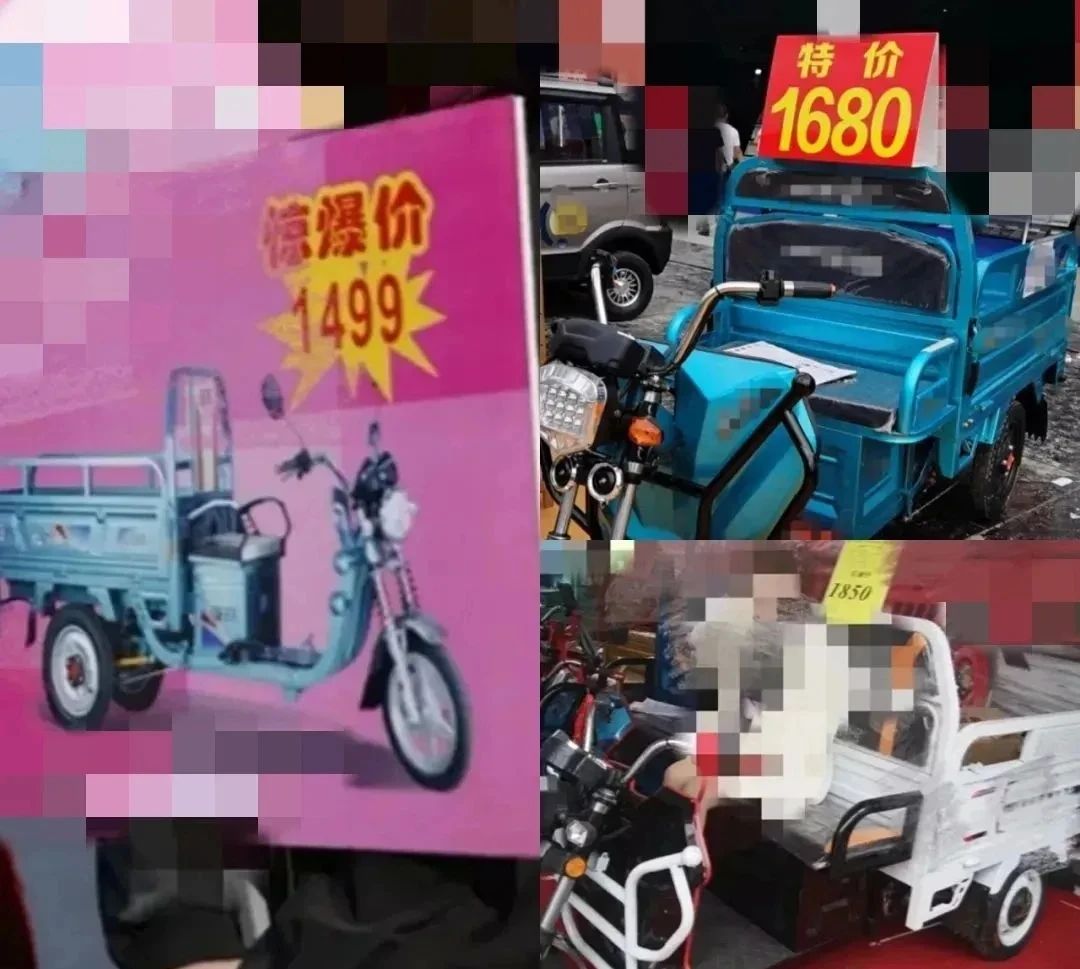
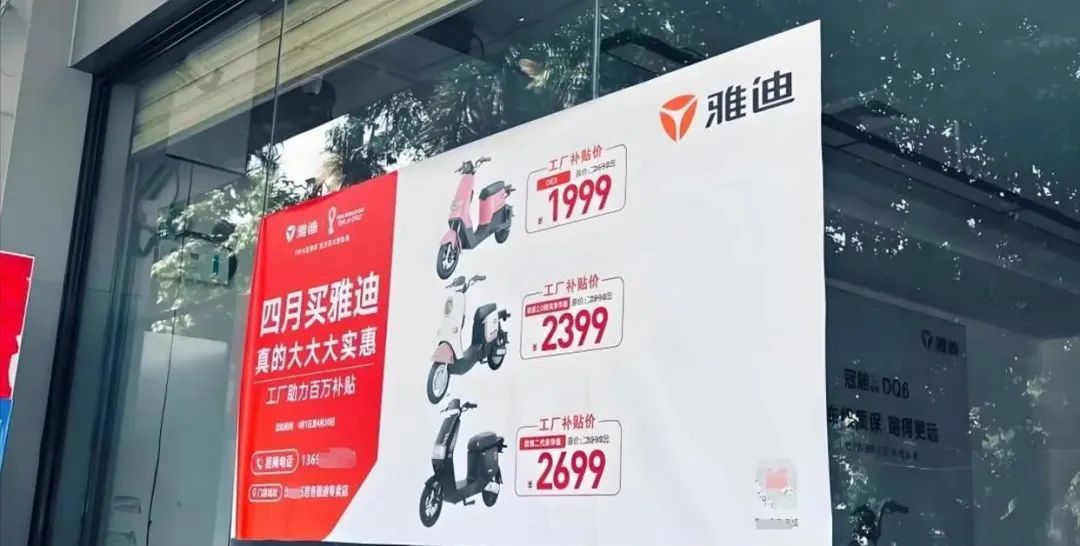
At first glance, the price war seems like a great deal for consumers, but beneath the surface, it's a double-edged sword. "Low price" does not equal "high cost-performance", and the industry is now plagued by three major issues: unqualified models flooding the market, cost-cutting in materials and manufacturing, and inferior batteries becoming a time bomb.
Dealers are also suffering under the price war. The profit margin per vehicle has shrunk to almost nothing, and some are even selling at a loss just to stay in business. To boost sales, they have no choice but to cut costs even further. As a result, after-sales service quality has plummeted, when customers face issues, they often can't even find anyone to help.
This brutal contradiction is tearing the industry apart. If we don't cut prices, we die; if we do, we die faster. Short-term price cuts may boost sales, but they crush profit margins, leaving manufacturers with little room to survive. R&D budgets are slashed, causing technological stagnation and preventing industry advancements. In the end, everyone gets trapped in a vicious cycle of low-quality competition, racing to the bottom until there's nothing left to fight for.
Simply put, if this continues, no one will survive in the end.

II. The Government Takes Action! Three Major Moves to Tackle the Price War Head-On!
With the industry trapped in a vicious cycle, the government has stepped in to restore order. Here are the three key measures directly targeting the root causes of the price war:
1. Breaking Local Protectionism and Market Fragmentation—A Nationwide Market Reshuffle!
Policy:In his government work report, Premier Li Qiang emphasized the need to accelerate the establishment of a comprehensive regulatory system to eliminate local protectionism and market fragmentation. The policy aims to remove obstacles to market entry and exit, optimize resource allocation, and comprehensively address "involution-style" competition that has been plaguing the industry.
Impact:The ultimate goal of this policy is to create a "unified and open national market" that fosters fair competition. With new regulations reshaping the industry’s competitive landscape, consumers will finally be able to purchase vehicles without the risk of being misled by local protectionist policies.
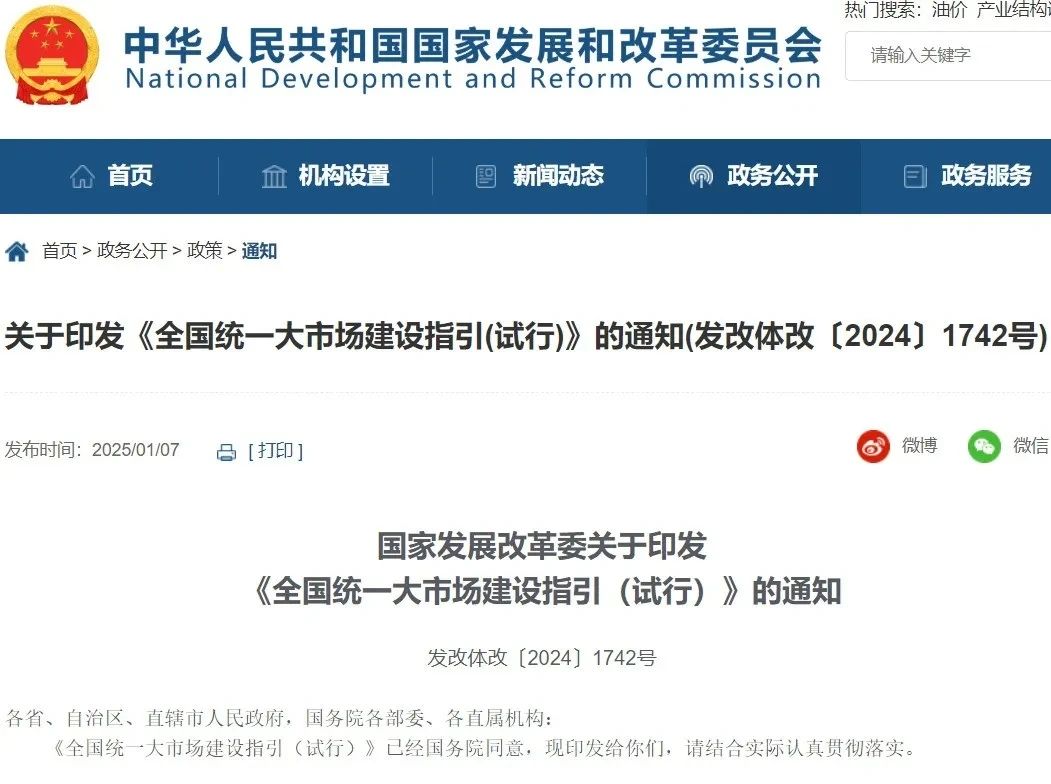
2. Regulating Market Order and Eliminating “Unbranded Chaos” – Compliance is the Key to Growth!
Policy:The new national standards require relevant authorities to strengthen control over the production sector, raise the entry threshold for manufacturers, and strictly review corporate qualifications. Additionally, penalties for violations in production and sales will be intensified to ensure compliance.
Impact:Leading brands like Aima and Yadea, backed by their strong quality and reputation, are likely to further expand their market share. In contrast, smaller brands that rely on low-cost, subpar products will face two choices: upgrade and comply with regulations or be eliminated by the market.
For consumers, this means greater peace of mind when purchasing a vehicle, as they no longer need to worry about buying unregulated, low-quality products.
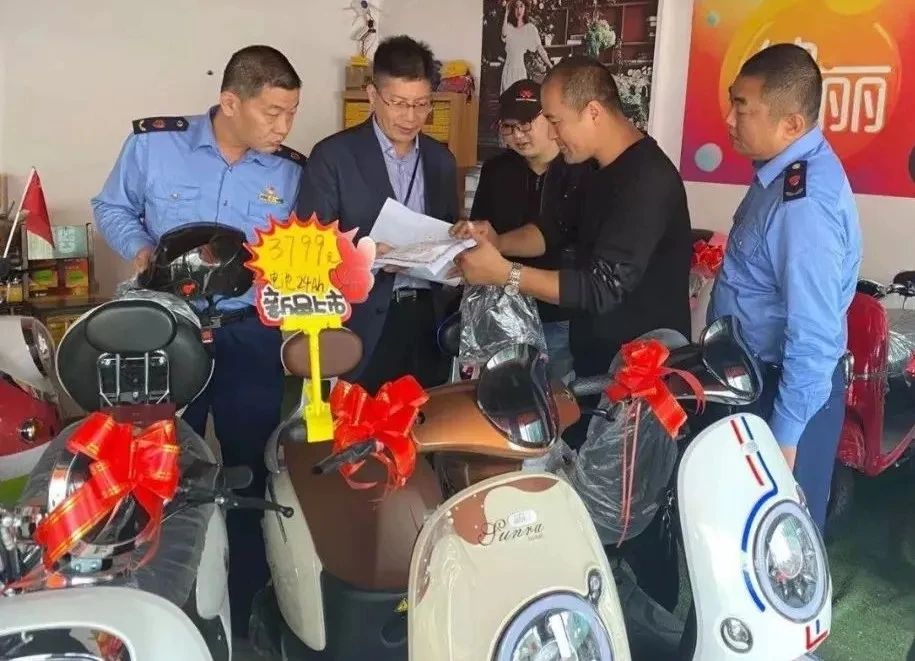
3. Driving Technological Innovation and Eliminating Outdated Capacity – "Zombie Companies" Are on Their Way Out!
Policy:The government has introduced an official "whitelist" for electric bicycle brands, ensuring that only qualified manufacturers can benefit from the trade-in policy initiated by the Ministry of Commerce. In 2024, several provinces, including Shandong, Liaoning, and Shanxi, have explicitly recognized the whitelist as a key factor in determining subsidy eligibility. Companies that meet the "Electric Bicycle Industry Regulatory Requirements" will have a competitive advantage.
Impact:The introduction of the whitelist and trade-in policy is reshaping the electric vehicle industry at an accelerated pace, further amplifying the Matthew Effect. For brands that make it onto the whitelist, this policy serves as a golden opportunity. These companies will gain a competitive edge in market activities, secure more sales channels and business opportunities.
The public announcement of the whitelist is not just a favorable wind, it's a full-blown spring breeze, signaling a brighter future for compliant, high-quality brands while pushing non-compliant players out of the market.

III. Breaking the Cycle of "Involution-Style" Competition – Proposals from NPC Representatives!
Lei Jun, a representative of the National People's Congress (NPC), emphasized that the future of the electric vehicle industry lies in technological innovation, personalization, and high-end development. At the same time, he called for fair competition, opposing unethical business practices such as defaming competitors and maintaining a healthy and orderly market environment.
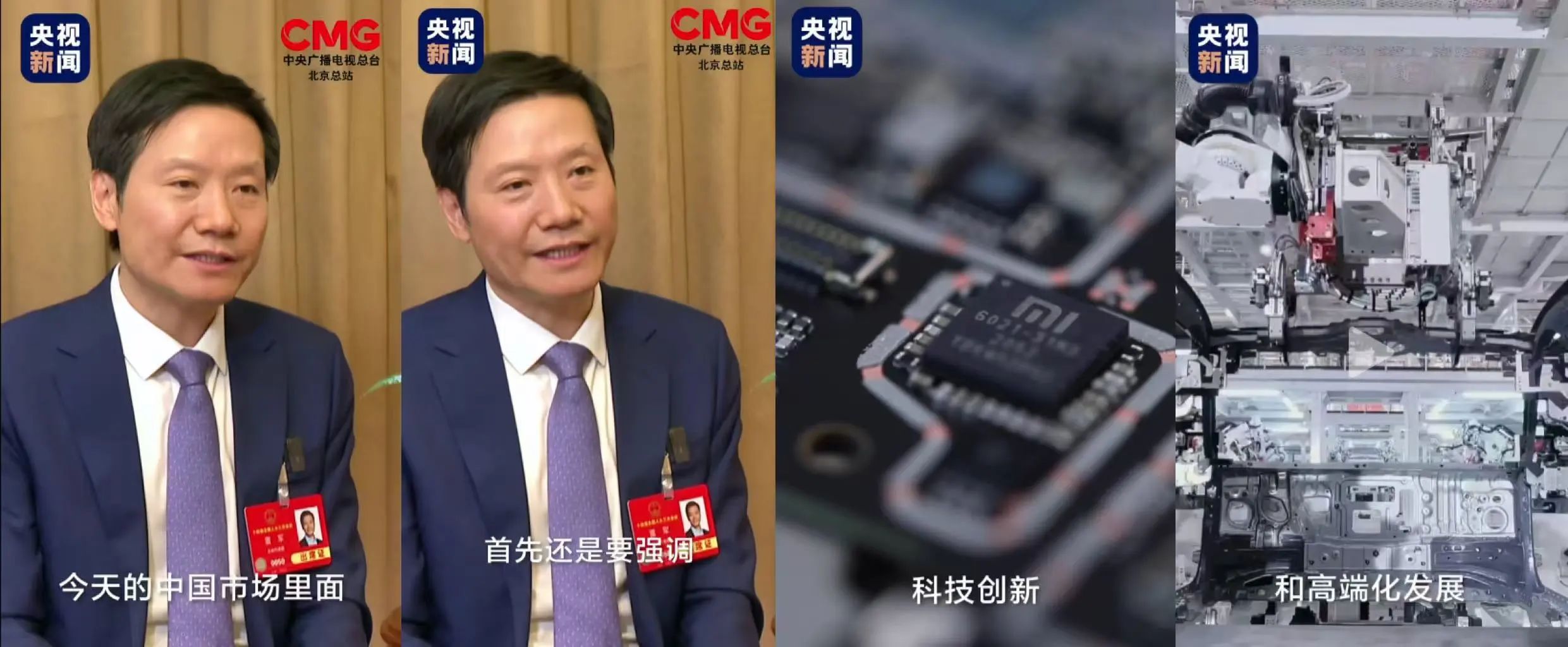
NPC Representative Kenneth Fok stated that, first and foremost, there must be government-business collaboration to strengthen industry self-regulation. Secondly, the local government performance evaluation system should be optimized, with long-term and reasonable economic development policies formulated based on local realities. Thirdly, enterprises should be supported in expanding overseas in an orderly manner, fostering the development of an international community of shared interests. Lastly, comprehensive supply chain governance should be implemented.
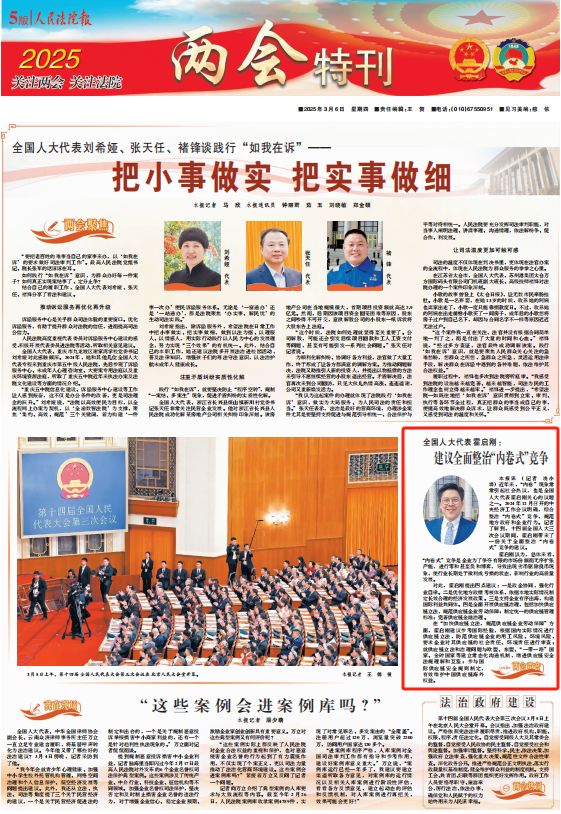
IV. Conclusion
The price war is a double-edged sword, but its drawbacks outweigh its benefits. While it may stimulate the market in the short term, it ultimately undermines the industry's long-term development. As consumers celebrate the rise of “budget electric vehicles,” companies must remain clear-headed. The key to survival does not lie in price cuts but in the value chain. Only by making strides in technology, quality, and branding can businesses emerge as the true winners in this brutal cycle of excessive competition.
